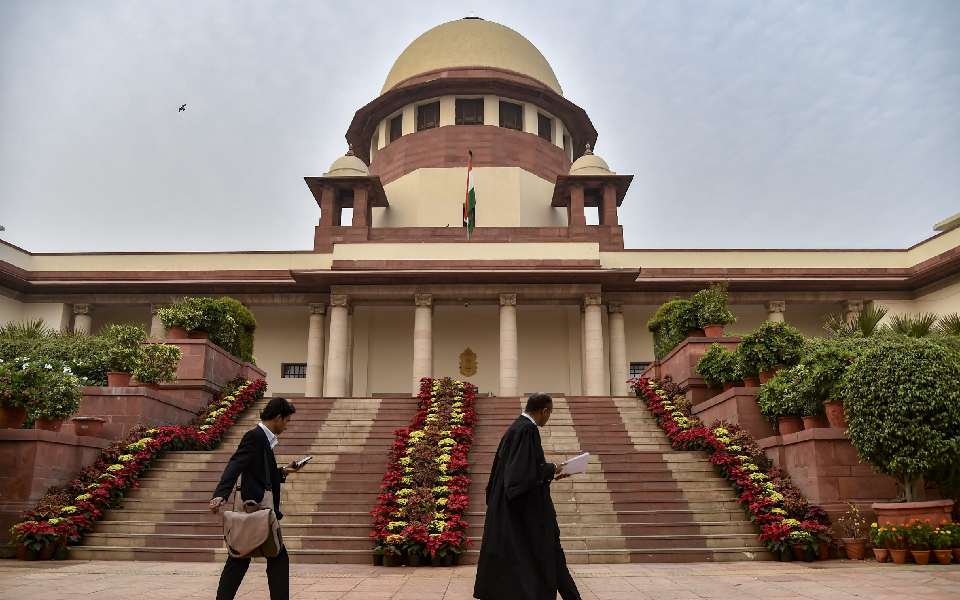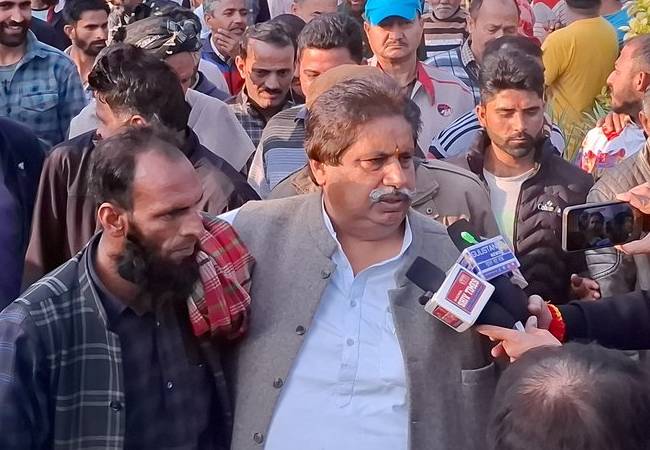New Delhi, Sep 24: The Supreme Court on Tuesday upheld a high court order that quashed the Punjab government's decision to widen the ambit of 'NRI quota' in undergraduate medical admissions to include distant relatives, observing this quota expansion was a "complete fraud" which must be put to an end.
"This is nothing but a money spinning machine," observed a bench of Chief Justice D Y Chandrachud and Justices J B Pardiwala and Manoj Misra while dismissing the state government's appeal against the verdict of the Punjab and Haryana High Court.
On September 10, the high court had set aside the AAP-led government's August 20 notification that expanded the NRI seat category to include distant relatives of candidates "such as uncles, aunts, grandparents, and cousins" for admissions under the 15 per cent NRI quota to medical and dental courses in state government colleges.
"We will dismiss all the petitions. This NRI business is nothing but a fraud. We will put an end to all this.... now the so called precedents must give way to primacy of law," the bench said.
The top court said distant relatives of a 'mama, tai, taya,' who are settled abroad, will get admissions ahead of meritorious candidates and this cannot be allowed.
"This is completely a fraud. And this is what we are doing with our education system!...We will affirm the high court judgement. We must stop this NRI quota business now. The judges know what they are dealing with. The high court has dealt with the case threadbare," the CJI said.
"Let us put a lid on this...what is this ward? You just have to say that I am looking after X ... We cannot lend our authority to something which is blatantly illegal."
Terming the high court verdict "absolutely right," the top court said, "Look at the deleterious consequences... the candidates who have three times higher marks will lose admission (in NEET-UG courses)."
Senior advocate Shadan Farasat, appearing for the Punjab government, said other states like Himachal Pradesh, Uttar Pradesh also followed the broader interpretation of the term 'NRI quota.'
Moreover, the states have the power to decide as to how 15 per cent NRI quota within the 85 per cent quota for the states has to be granted.
A total of 85 per cent NEET-UG seats in medical colleges are filled up by the states in medical colleges under their jurisdiction, the counsel, who was in favour of the NRI quota, told the bench.
A division bench of the high court had come out with an elaborate judgement setting aside the state government decision to broaden the ambit of NRI quota for admissions in medical colleges in Punjab.
The high court took note of the submissions that the decision to widen the ambit of NRI quota was taken to divert the seats which would have otherwise come to the general category applicants.
"Imparting education is not an economic activity but a welfare-oriented endeavour as the ultimate aim is to achieve an egalitarian and prosperous society in order to bring about social transformation and upliftment of the nation.
"Doctrine of merit and fairness cannot be sacrificed only because the students falling in the expanded definition of Non-Resident Indian (NRI) possess financial muscle," the high court had said.
"Capitation fee has totally been prohibited. If the admissions in the expanded NRI category to include non-genuine NRIs are permitted; the prohibition made on charge of capitation fee would serve no higher purpose, as the State/private colleges would be at liberty to reap the benefits by amending the provisions according to their whims, which means accepting it by disguising the process," according to the high court.
The expansion of 'NRI' definition through the state government corrigendum is "unjustified for several reasons," the high court said.
"Initially, the 'NRI Quota' was intended to benefit genuine NRIs and their children, allowing them to access education opportunities in India. By broadening the definition to include distant relatives such as uncles, aunts, grandparents, and cousins, the core objective of NRI quota is undermined.
"This widening opens the door for potential misuse, allowing individuals who do not fall within the original intent of the policy to take advantage of these seats, potentially bypassing more deserving candidates," it said.
Let the Truth be known. If you read VB and like VB, please be a VB Supporter and Help us deliver the Truth to one and all.
Ranchi (PTI): A 25-year-old man, who works as a butcher, allegedly strangled to death his live-in partner and chopped her body into 40 to 50 pieces in a forested area in Jharkhand’s Khunti district, police said on Wednesday.
The accused, identified as Naresh Bhengra, was arrested.
The matter came to light after around a fortnight after the killing when a stray dog was found with human body parts near Jordag village in Jariagarh police station on November 24.
Bhengra was in a live-in relationship with the deceased, a 24-year-old woman also from Khunti district, in Tamil Nadu for the past couple of years. Sometime back, he returned to Jharkhand, got married to another woman without telling his partner anything and went back to the southern state without his wife to join her.
"The brutal incident occurred on November 8 when they reached Khunti as the accused who had married another woman did not wish to take her home. Instead, he took her to a forest near his house at Jordag village in Jariagarh police station and chopped the body into pieces. The man has been arrested," Khunti Superintendent of Police Aman Kumar told PTI.
Inspector Ashok Singh who investigated the case said the man worked in a butcher shop in Tamil Nadu and was expert in slicing chicken.
“He admitted chopping the body parts of the woman into 40 to 50 pieces before leaving those in the forest for wild animals to feast on. The police recovered several parts on November 24 after a dog in the area was seen with a hand," Singh told PTI.
Singh said that the woman, who was unaware of his marriage, pressured him to return to Khunti. After reaching Ranchi, they boarded a train on November 24 and headed to the man's village.
"Under a plan, the man took her to Khunti in an autorickshaw near his home and asked her to wait. He returned with sharp weapons and strangulated her with her dupatta after raping her. He then cut the body into 40 to 50 pieces and left for his home to live with his wife," Singh said.
The woman, however, had informed her mother that she had boarded a train and would be living with her partner, the police officer said.
Following the recovery of body parts, a bag was also found in the forest with the murdered woman's belongings including her Aadhaar card. The mother of the woman was called at the spot and she identified her daughter's belongings.
"The mother suspected the man behind the crime who after being nabbed by the police admitted to chopping the woman into pieces," the official added.
The incident has sent shockwaves among people in the region, with the Shraddha Walker murder case of 2022 still fresh in their memory.
Walker was killed by her live-in partner who chopped her body into pieces before dumping them in the jungle in South Delhi’s Mehrauli.





